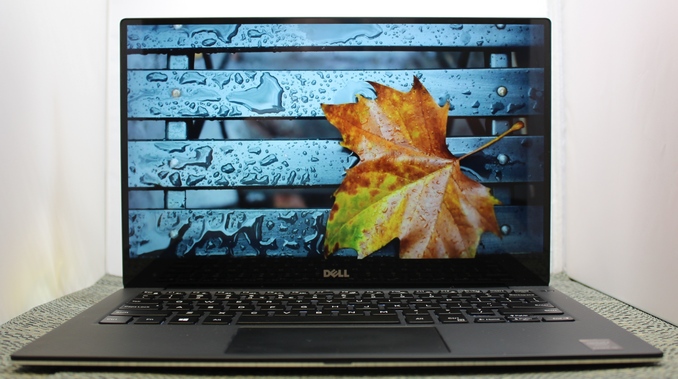Dell Issues Patch For Content Adaptive Brightness Control On The XPS 13
by Brett Howse on December 21, 2015 8:00 AM EST
The XPS 13 was one of the best laptops of the year, but it did have some issues, as all devices do. One that was very frustrating to deal with during the review was the aggressive Content Adaptive Brightness Control (CABC) which was enabled by default, with no way to disable it. CABC is a common method of saving power, since the backlight can be lowered depending on what content is on the display. Unfortunately, it was so aggressive that trying to accurately establish battery life was difficult, since we set the displays to 200 nits. With the CABC, brightness would vary quite substantially just with webpages flashing onto the screen.
It was also an issue when trying to calibrate the display. The calibration software first sets a baseline brightness on white (200 nits again is what we use) and then flashes various shades of gray and color to create a profile for the display. Once again, the CABC would get in the way, changing the brightness that the software was expecting.
I think for most people, it would be something that they would notice, but not something that would bother them too much, unless you were doing certain tasks where it would kick in. I am all for power saving features, but anytime you add something like this, you need to have a way to disable it for customers who don’t want it. Luckily Dell is now offering a patch to disable this feature.
At the moment, the only way to get the patch is to contact Dell support. It would be nice if they would just offer it as a link to download, but for the moment this is what we have.
Being able to remove the aggressive CABC fixes one of my biggest issues with the XPS 13, and it was already one of the best laptops of the year. With this fix, it moves up a bit more.
Update 2016-01-04: Dell is now offering the patch on their site on the source link below.
Source: Dell










43 Comments
View All Comments
glad2meetu - Thursday, December 31, 2015 - link
While the XPS 13 looks like a great product, Dell still manages to screw it up. I decided against buying it. Dell does a fair job on their business laptops in terms of reliability, but their consumer products don't have the commitment to software quality and drivers to make them a worthy challenger to Apple and Microsoft. I had high hopes for this laptop and I can see why many people like it. Dell has made significant improvements in their build quality. I still have concerns that Dell designs their laptops to get too hot. What I dislike the most though is the proprietary power connectors that Dell makes are expensive and tend to last only about 2 or 3 years before failing. I strongly considered buying this XP13 laptop, but I am glad that I have held off. Dell does not work quickly enough to address issues and to try and head them off proactively. At the moment, if I was going to buy a laptop, I would choose Apple or Microsoft over Dell. I am hoping that the industry moves to USB-C for power connections.CharCharBinks - Wednesday, January 27, 2016 - link
The patched linked is for the skylake model, not the broadwell model.willis936 - Sunday, February 14, 2016 - link
Yeah I keep getting write fails when I try to run it. I'm glad it's failing and not bricking the display driver but it's still pretty sad (as in embarrassing for dell) that they couldn't fix a serious issue for a lot of people who care who bought their golden boy last year.